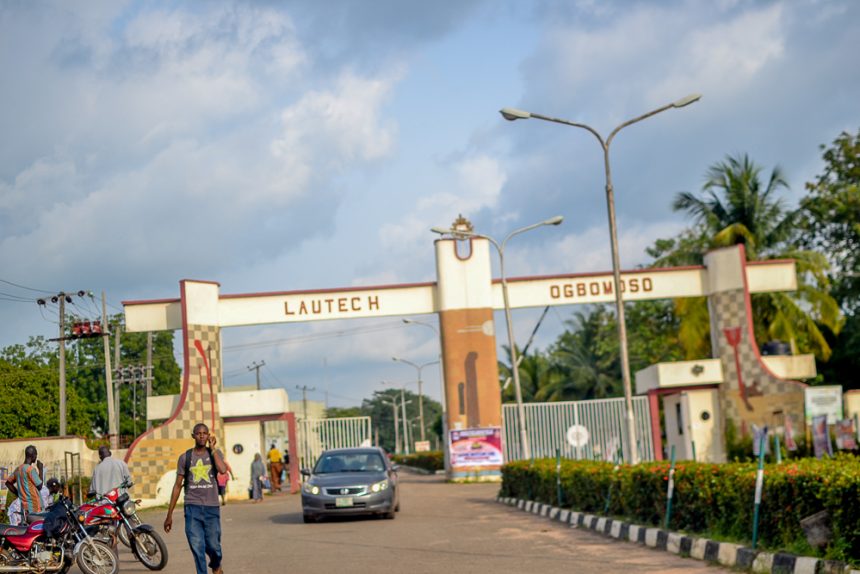Dr. Debo Akande, the Director General of Oyo State Agribusiness Development Agency (OYSADA), expressed delight at the progress of developmental initiatives within the Fasola Agribusiness Industrial Hub. He emphasized its transformation into a prime destination for both local and international investors, as well as a valuable educational resource for students from various educational levels.
During the visit of the former Minister of Food and Agriculture of Ghana, Hon Muhammed Muniru Limuna, Dr. Akande highlighted the hub’s potential in fostering food security partnerships across West Africa and the entire continent.
Moreover, Dr. Akande led 210 final year students from Ladoke Akintola University of Technology (LAUTECH) on an educational tour of the hub, showcasing its modern agricultural practices and facilities. Professors Adesina Gabriel Olulakin and Biodun Olaniya, alongside other faculty members, accompanied the students, expressing satisfaction with the practical exposure provided by the trip.
Speaking to journalists afterward, Dr. Akande reiterated the hub’s role as a center for learning, innovation, and investment attraction, aligning with Governor Seyi Makinde’s vision to enhance food sufficiency and empower local farmers across the state’s geopolitical zones. He emphasized the significance of exposing students to modern agricultural techniques within their own region, showcasing advancements in seed varieties, livestock management, greenhouse technologies, and supporting infrastructure.
I encourage them to recognize that agriculture doesn’t necessarily require vast land; urban agriculture or homestead farming in one’s backyard can suffice. I’ve advocated for backyard agriculture numerous times, emphasizing its ability to provide essentials without extensive space. Starting with vegetable cultivation or small-scale livestock farming at home can lay the groundwork for future success in farming.
Former Minister of Food and Agriculture of Ghana, Hon Muhammed Muniru Limuna, praised Governor Makinde for revitalizing the Fasola agribusiness industrial hub and fostering a conducive environment for agribusiness investors. He highlighted the practical nature of their visit, aimed at forging partnerships and addressing agricultural challenges firsthand. Reflecting on their experiences at IITA and interactions with local farmers, he emphasized the importance of viewing agriculture as a business rather than just a developmental endeavor.
He stressed the need for governments to create enabling environments for private sector involvement in agriculture to address food security challenges effectively. Impressed by the developments at the Fasola Agribusiness Industrial Hub, he expressed a desire to collaborate further, acknowledging the limitations of assessing agricultural realities from a bureaucratic standpoint.
Prof. Gabriel Olulakin, leading the LAUTECH team, commended Governor Seyi Makinde for establishing the Fasola Agribusiness Industrial Hub, underscoring its educational and environmental significance for students. He explained the importance of practical courses for students to gain real-world experience and assess the environmental impact of their agricultural practices.
It’s widely recognized that our actions profoundly impact our lives, and for these students, witnessing practical farming methods firsthand is invaluable. Today, as we’ve toured this hub, they’ve realized that farming extends far beyond traditional tools like hoes and cutlasses; it involves modern equipment and is fundamentally a business venture, not just a passion.
These students represent the future of agriculture. If we fail to expose them to global agricultural practices, they may not fully grasp the potential of farming as a career, despite their agricultural education. Therefore, experiences like this are crucial for broadening their perspectives and encouraging them to consider agribusiness as a viable path.
I commend Governor Makinde for spearheading initiatives like this, which not only empower youth but also provide practical learning opportunities. By witnessing these innovations firsthand, students are experiencing a paradigm shift in their perception of agriculture.
My advice to them is to seize this opportunity and nurture the vision planted in their minds today. Just like the biblical adage about running with a vision, they must embrace this newfound understanding and use it to shape their futures positively.
Presley Osagie, speaking on behalf of the students, expressed gratitude for the eye-opening experience. They’ve learned that agriculture encompasses much more than what they’ve been taught in the classroom. From cassava farms to high-tech dairy operations and modern vegetable processing in greenhouses, they’ve seen the vast potential of mechanized farming and are eager to embrace it. This exposure has sparked a realization that agriculture is not only a substantial investment but also a vital sector for future generations to engage in.





